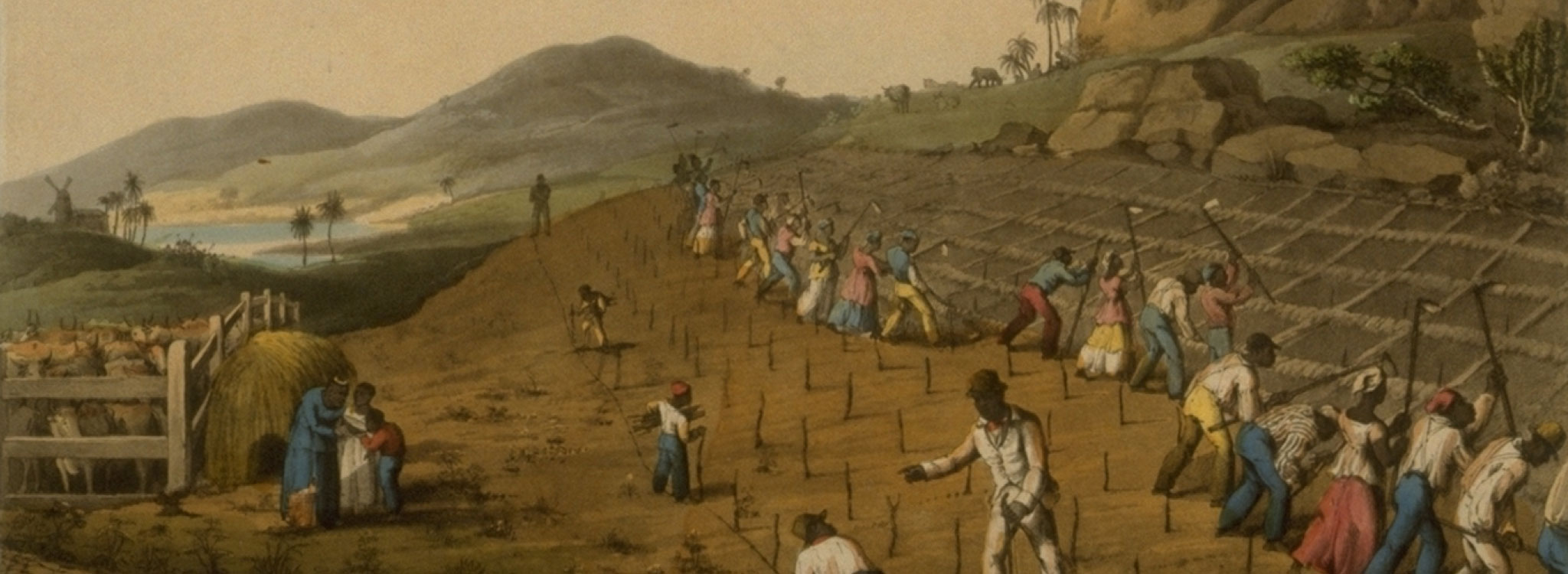The man who came to be known to Europeans as Job ben Solomon was one of 388,000 Africans shipped to North America during the slave trade. He was one of a very small number of enslaved to survive the Middle Passage and captivity in North America and secure his return home to Africa.
Around 1702, he was born Ayuba Suleiman Diallo into a prominent family of Muslim clerics in the kingdom of Bundu, in present-day northeastern Senegal. His mother, Tonamata, was the wife of a notable Fulbe cleric. At a young age he achieved renown for his intelligence, learning to read and write Arabic and studying the Koran. He also had success as a trader.
In 1730 or 1731, when he was in his late 20s, Job’s father sent him to sell two slaves to an English trader, Captain Stephen Pike. After unsuccessful negotiations, he crossed the Gambia River and sold his slaves. On his way home, he was captured by Mandinka slavers who sold him and his translator to the same captain Pike, who commanded the slave ship Arabella. Job’s father attempted to exchange slaves for his son, but his men arrived in coastal Gambia too late to buy back his son’s freedom.
Upon his arrival in Maryland, Job was sold to Alexander Tolsey, a tobacco planter for forty-five pounds. Being of noble birth, he was a poor agricultural laborer and soon fled from the plantation. He was caught and jailed for several months where he was eventually visited by an attorney Thomas Bluett, who determined that Job was Muslim, and thus likely from a particular part of West Africa. As Job did not speak English, a Senegambian slave was found to translate to the Wolof language, which he knew. After learning that he was a runaway slave, Job was sent back to Tolsey’s plantation.
In an effort to return home, Job wrote a letter in Arabic to his father in Bundu, explaining his fate, and asking for money for his freedom. His letter was seen by James Oglethorpe, a lawyer, deputy governor of the Royal African Company, and one of the founders of Georgia, which was originally intended as a slave-free colony. Oglethorpe had the letter translated from Arabic, and upon reading it, decided to arrange for Job’s freedom himself. After his purchase—Oglethorpe paid forty-five pounds to compensate Tolsey—Job sailed to England in 1733 to finalize his freedom. He arrived in London and impressed scholars in England with his intelligence, writing the Koran from memory. Job became such a celebrity that he was even introduced to the King and Queen of England. He also sat for a famous portrait, which currently hangs in the National Portrait Gallery in London.
In 1734, Job finally gained his freedom, and returned to Senegambia as a free man. His own experience in captivity did not, however, turn him against the slave trade. He worked on behalf of the Royal African Company to improve British trade positions against the French. His work was ultimately unsuccessful. In 1737, he was imprisoned by the French, but later released. Little knowledge of the last decades of Job’s life exists, but it appears he died around 1773.
Read the full, original biography by Allan D. Austin in the African American National Biography
Online Resources
“A Slave About Two Years in Maryland,” Becoming American: The British Atlantic Colonies, 1690-1763, National Humanities Center Resource Toolbox
Bibliography
Allan D. Austin. African Muslims in Antebellum America: Transatlantic Stories and Spiritual Struggles. New York: Routledge, 1997 [1984].Arthur Pierce Middleton. “The Strange Story of Job ben Solomon.” William and Mary Quarterly 5, no. 3 (1948): pp. 342-50.
Douglas Grant. The Fortunate Slave: an Illustration of African Slavery in the Early Eighteenth Century. London: Oxford University Press, 1968.
Francis Moore. Travels into the Inland Parts of Africa: containing a description of the several nations for the space of six hundred miles up the River Gambia; their trade, habits, customs, language, manners, religion and government; the power, disposition and characters of some negro princes; with a particular account of Job Ben Solomon. London: E. Cave, 1738.
Peavler, David J.. "Solomon, Job Ben." Encyclopedia of African American History, 1619-1895: From the Colonial Period to the Age of Frederick Douglass, edited by Ed. Paul Finkelman. Oxford African American Studies Center, http://www.oxfordaasc.com/article/opr/t0004/e0528 (accessed Thu Sep 05 09:23:24 EDT 2019).
Philip D. Curtin. “Ayuba Suleiman Diallo of Bondu,” In Africa Remembered: Narratives by West Africans from the Era of the Slave Trade. Madison: University of Wisconsin Press, 1967, 17-59.
Thomas Bluett. Some Memoirs of the Life of Job, the Son of Solomon, the High Priest of Boonda in Africa, who was a slave about two years in Maryland, and afterwards being brought to England, was set free, and sent to his native land in the year 1734. London: Printed for Richard Ford, 1734.
Author
Allan D. Austin
Adapted by
David Glovsky and Elizabeth Timbs
Contributing Institutions
Hutchins Center for African & African American Research, Harvard University, Cambridge, MA.
Oxford University Press (USA) African American Studies Center.







